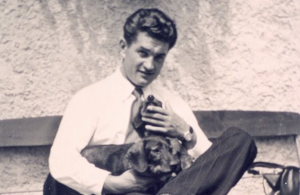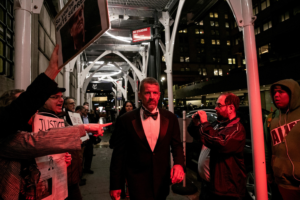An apology by public officials would be the first step toward acknowledgment of government’s role in the sins of our past and the effects that linger today. And it would be the start of racial healing.
Pope Francis did something recently that every mayor and governor in the United States, and the president as well, should do: The pope apologized, in his case for sins committed by the Catholic Church. His church, from as far back as 150 years, was among religious institutions that separated tens of thousands of Indigenous children in Canada and the U.S. from their families and sent them to Indian boarding schools run by missionaries. The aim was to convert the children to Christianity and assimilate them into mainstream society. The children were beaten for speaking their native languages and frequently physically or sexually abused. Thousands of them died.
This column is not about the Catholic Church’s abuses or the adequacy, or lack thereof, of the pontiff’s apology. The pope’s action is a metaphor for responsive leadership owning up to an organization’s troubled past. His actions offer a paradigm for public officials in this country to follow if and when they apologize for the sins of our past — not just to Native Americans (to whom some reparations have been provided), but to the 42 million African Americans who are descendants of enslaved Africans and have not been provided recompense of any kind.
How difficult is it to say “I’m sorry”? A few unsatisfying attempts at making an apology for slavery have been attempted by political leaders. In 2008, the U.S. House approved a resolution admitting that slavery was wrong and citing the government’s role in its perpetuation. The problem is that this occurred 143 years after the 13th Amendment outlawed slavery. A few states have passed mealy-mouthed resolutions offering regrets for the roles they played in slavery. But back when former Agriculture Secretary Sonny Perdue was governor of Georgia in 2007, he echoed the sentiments of many conservatives when he said: “Repentance comes from the heart.” That meant no public apology would be forthcoming. And a brouhaha erupted in Virginia in 2010 when then-Gov. Bob McDonnell had to apologize for leaving slavery out of his proclamation designating the month of April as the state’s Confederate History Month.
It is not just the evil of slavery for which public officials need to apologize; it’s the lingering effects of it that manifest in societal problems today. Poverty, homelessness, health disparities, addiction and anti-social behavior draw many minority youths into a vicious cycle that starts the moment they are born and often leads to prison or the graveyard. Even some successful Blacks experience physical and psychological trauma in their lives associated with racism and what W.E.B. Du Bois called, in his seminal book The Souls of Black Folk, “double-consciousness.” This, he wrote in 1903, is the dialectic that causes many African Americans and other people of color to look at themselves “through the eyes of others, of measuring one’s soul by the tape of a world that looks on in amused contempt and pity.”
The effects of “the peculiar institution,” as antebellum white southerners referred to slavery and the late historian Kenneth M. Stampp titled his influential 1956 book, are still with us today. They influence our attitudes about race and lead boorish politicians to pass legislation that contributes to voter suppression, discount the legitimacy of Black voters and lecture the nation on what constitutes true racism without feeling a bit of shame. Last year, for one example, Georgia Gov. Brian Kemp, in almost record time, signed into law bills that placed major restrictions on Georgians’ access to the ballot after conservative legislators forced them through the General Assembly. Virginia Gov. Glenn Youngkin took office this January after successfully running on a racist platform that opposed so-called “critical race theory” as an “inherently divisive concept.” One of Youngkin’s first acts was to sign an administrative order that banned the teaching of CRT in public schools, although educators have stated repeatedly that the theory has never been taught in Virginia schools.
When the pope apologized for the sins of the Catholic Church, it invoked pain and feelings of trauma among many of the elderly victims of the Indian boarding schools who are still living. The emotional catharsis following his visit to Canada was necessary for healing to begin. Healing among the races in the U.S. is needed too, but it must start with three simple words by our government: “We are sorry.”
The apology will not be for the sins of the slaveholders, who are all long dead. It will be public acknowledgment that the government knows that many of the advancements in our cities, states and country — for businesses, higher education institutions and government — occurred at the expense of and on the backs of the ancestors of today’s African Americans who were forced to provide free labor. And of all the things we know in a capitalistic economy, we know that nothing is free.
Apologizing is only the first step. This needs to be followed up with meaningful action, recompense and commitments not to revert to the old ways. Atlanta Mayor Andre Dickens often says he learned from his pastor that “love is a verb and it ought to look like something.” Beginning with a heartfelt public apology, public officials need to lead the way in showing us what that “something” is.
Governing‘s opinion columns reflect the views of their authors and not necessarily those of Governing‘s editors or management.




